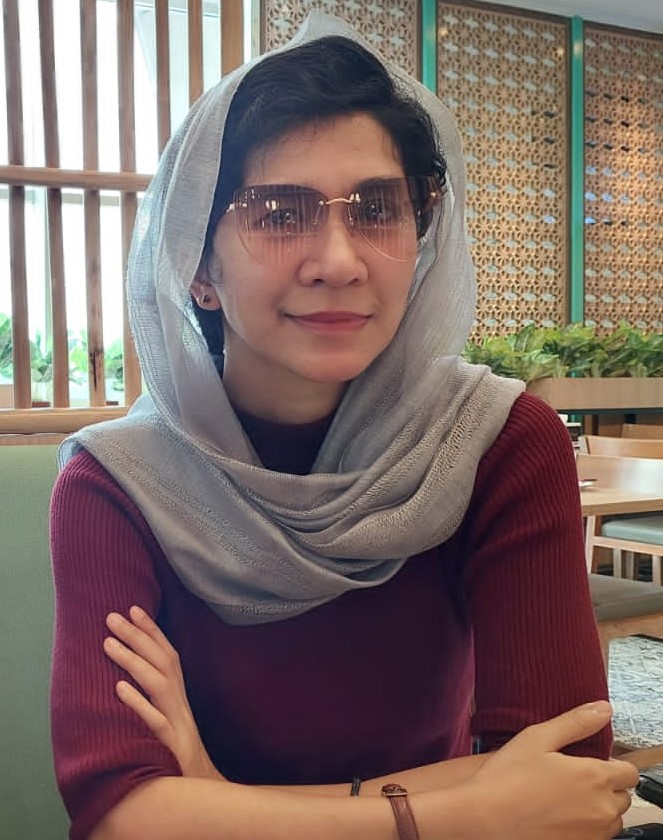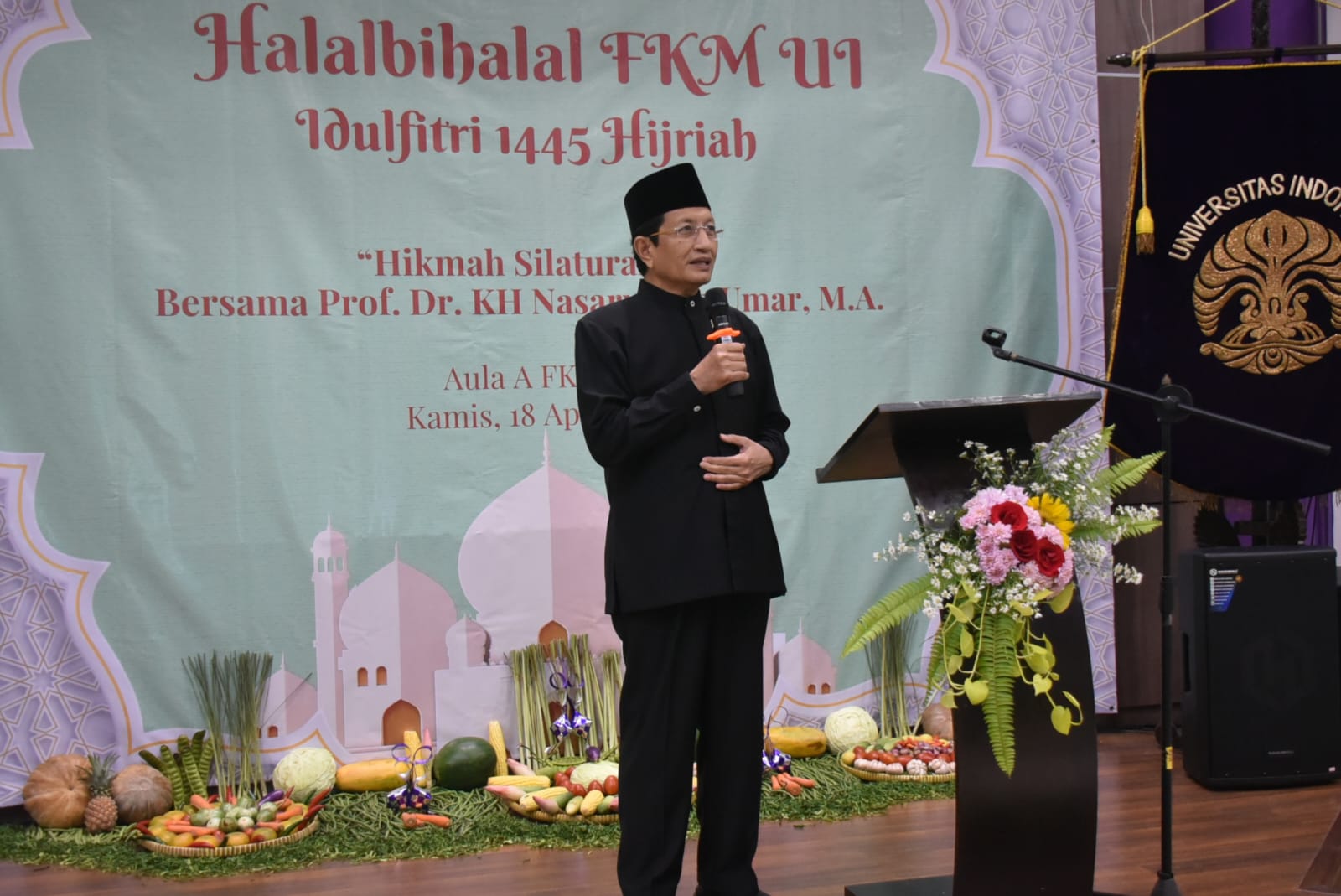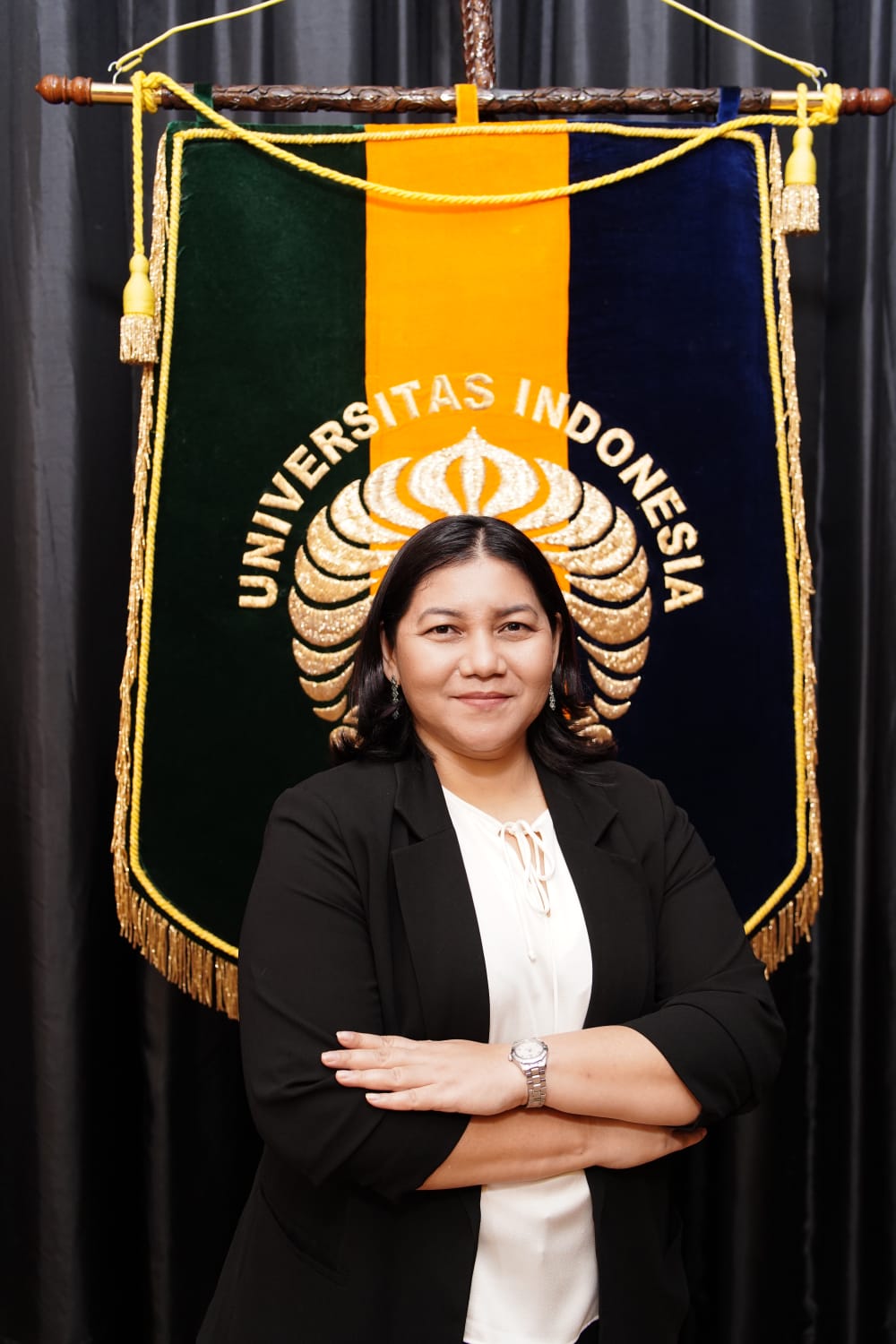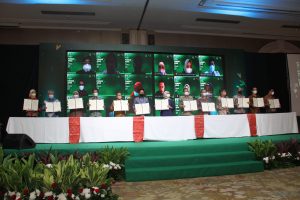
University of Indonesia together with 11 other universities signed a collaboration with the Food and Drug Supervisory Agency (Badan Pengawas Obat dan Makanan, BPOM) for the Safe Food Goes to Campus Implementation program.. The signing of this MoU was held at the Shangri-La Hotel, on Thursday (14/4), and was broadcast live through the Youtube channel. Present at the event, Director of Digital Development, Center for Independent Learning, Universitas Indonesia, Fransiskus Astha Ekadiyanto, S.T., M.Sc.; Head of BPOM, Dr. Penny K. Lukito, MCP.; as well as rectors and representatives from 11 universities.
Safe Food Goes to Campus is BPOM’s effort in building superior human resources and facilitating the acceleration of business development by taking sides with Micro, Small and Medium Enterprises (MSMEs). BPOM together with the Ministry of Education, Culture, Research, and Technology (Kementerian Pendidikan, Kebudayaan, Riset, dan Teknologi, Kemendikbudristek) through the Kampus Merdeka dan Merdeka Belajar programs carry out partnership activities to form human resources capable of supporting drug and food supervision and contributing to the competitiveness of processed food MSMEs. This program provides basic knowledge and skills to students on how to produce good processed food so that they are able to assist and manage MSMEs. Students are expected to have direct experience in the field as capital for entrepreneurial competence in the food sector.
According to Dr. Penny, this forum gives hope for the realization of programs established by BPOM and Kemendikbudristek. BPOM continues to develop various innovations to protect the public through food control and educate the public to become smart consumers. “Food is a potential industry so it must be accompanied. I see this program as having high potentials because it provides benefits for students. This program, which is integrated with the Kampus Merdeka dan Merdeka Belajar, seeks to facilitate students to become a generation that is ready to compete in the world of work.”
Currently, there are 125 students participating in this program—116 from State Universities (PTN) and 9 from Private Universities (PTS)—spreading in 9 provinces, namely East Java, Central Java, West Java, Yogyakarta, South Sulawesi, North Sumatra, DKI Jakarta, Lampung, and West Sumatra. These students come from several majors, namely food technology, agriculture, agribusiness, agro-industrial product development, fisheries, animal husbandry, agricultural engineering, industrial engineering, agricultural industrial technology, nutrition, pharmacy, public health, chemistry, biology, biotechnology, physics, and environmental Health.
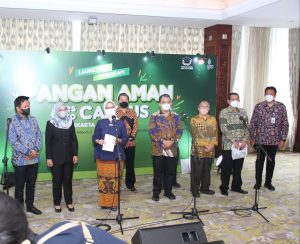
The Safe Food Goes to Campus program is implemented in several activities, including the preparation of a learning curriculum; organizing training, socialization, workshops, and seminars; assistance for internships or student work practices in the context of empowering processed food MSEs; and competency certification for food safety facilitators. The learning curriculum is designed according to the requirements listed in the Indonesian National Work Competency Standard No. 618 of 2016 concerning Food Safety. Meanwhile, training activities and internship assistance are supported by competent mentors in the processed food sector who assist students so that the program runs effectively and efficiently. The mentors come from Central BPOM officers, lecturers, professionals, and food business actors throughout Indonesia.
Safe Food Goes to Campus provide long-term benefits and broad impacts for education and food stakeholders as well as for the Indonesian people. In addition to increasing the competitiveness of MSMEs, this program also supports the government in its efforts to provide new job opportunities so as to move the economy and community independence to realize an advanced, independent, and sovereign Indonesia. Through the integration of the competency-based food safety extension profession with the learning curriculum on campus, it is hoped that competent and independent graduates will be born who are ready to work in the real world and contribute to the development of superior and competitive Indonesian people.
This collaboration between UI and BPOM aims to produce university graduates who are competent, tough, and able to work in the field of food safety. With this cooperation, it is hoped that food security and the competitiveness of processed food MSME products will increase so that social economic recovery efforts can be realized. The twelve universities that are members of this program include: Universitas Indonesia, Institut Teknologi Bandung, Universitas Gajah Mada, Institut Pertanian Bogor, Universitas Padjajaran, Universitas Brawijaya, Universitas Airlangga, Universitas Sumatera Utara, Universitas Andalas, Universitas Hasanudin, Universitas Bhayangkara, and Universitas Sahid.

